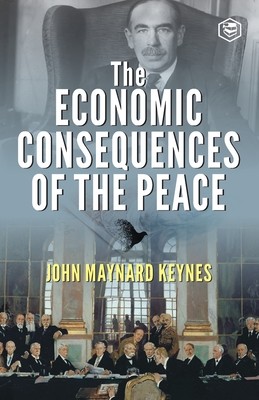
- We will send in 10–14 business days.
- Author: John Maynard Keynes
- Publisher: Sanage Publishing House
- ISBN-10: 9394924248
- ISBN-13: 9789394924246
- Format: 14 x 21.6 x 1.3 cm, minkšti viršeliai
- Language: English
- SAVE -10% with code: EXTRA
Reviews
Description
The Economic Consequences of the Peace (1919) is a book written by the British economist John Maynard Keynes. In his book, he argued for a much more generous peace, not out of a desire for justice or fairness, these are aspects of the peace that Keynes does not deal with but for the sake of the economic well-being of all of Europe, including the Allied Powers, which the Treaty of Versailles and its associated treaties would prevent. The success of the book established Keynes' reputation as a leading economist, especially on the left. When Keynes was a key player in establishing the Bretton Woods system in 1944, he remembered the lessons from Versailles as well as the Great Depression. The Marshall Plan, which was promulgated to rebuild Europe after the Second World War, was similar to the system proposed by Keynes in The Economic Consequences of the Peace.
- Author: John Maynard Keynes
- Publisher: Sanage Publishing House
- ISBN-10: 9394924248
- ISBN-13: 9789394924246
- Format: 14 x 21.6 x 1.3 cm, minkšti viršeliai
- Language: English English
The Economic Consequences of the Peace (1919) is a book written by the British economist John Maynard Keynes. In his book, he argued for a much more generous peace, not out of a desire for justice or fairness, these are aspects of the peace that Keynes does not deal with but for the sake of the economic well-being of all of Europe, including the Allied Powers, which the Treaty of Versailles and its associated treaties would prevent. The success of the book established Keynes' reputation as a leading economist, especially on the left. When Keynes was a key player in establishing the Bretton Woods system in 1944, he remembered the lessons from Versailles as well as the Great Depression. The Marshall Plan, which was promulgated to rebuild Europe after the Second World War, was similar to the system proposed by Keynes in The Economic Consequences of the Peace.


Reviews